
Top Insurance Consulting Firms to Work With - October 2025
Introduction
Insurance consulting has taken on a renewed level of importance over the past year as insurers navigate heightened regulatory pressure, evolving risk models, and accelerating digital transformation. In October 2025, choosing the right insurance consulting firms can shape a company’s strategy, operations, and long-term competitiveness.
While many insurers are growing internal capabilities, insurance consulting firms remain essential partners—bringing specialized expertise, helping offset bandwidth limitations, and offering cost-effective execution. In the following sections, we uncover the top 10 insurance consulting firms leading the way in today’s complex and fast-moving landscape.
Top 10 Insurance Consulting Firms
1. G & Co.
G & Co. is a leading consulting company insurance brands trust for modernizing operations, accelerating growth, and building resilient digital ecosystems. G & Co. helps insurers unlock performance through customer journey redesign, digital transformation, and tailored insurance agency growth strategies—offering deep support across strategy, experience design, and technology implementation for enterprise carriers and mid-size players alike.
G & Co. is a minority business enterprise (MBE), as certified by the National Minority Supplier Development Council (NMSDC). If diversity inclusion is a part of your supplier process, contact us—we may be a great fit for your enterprise.
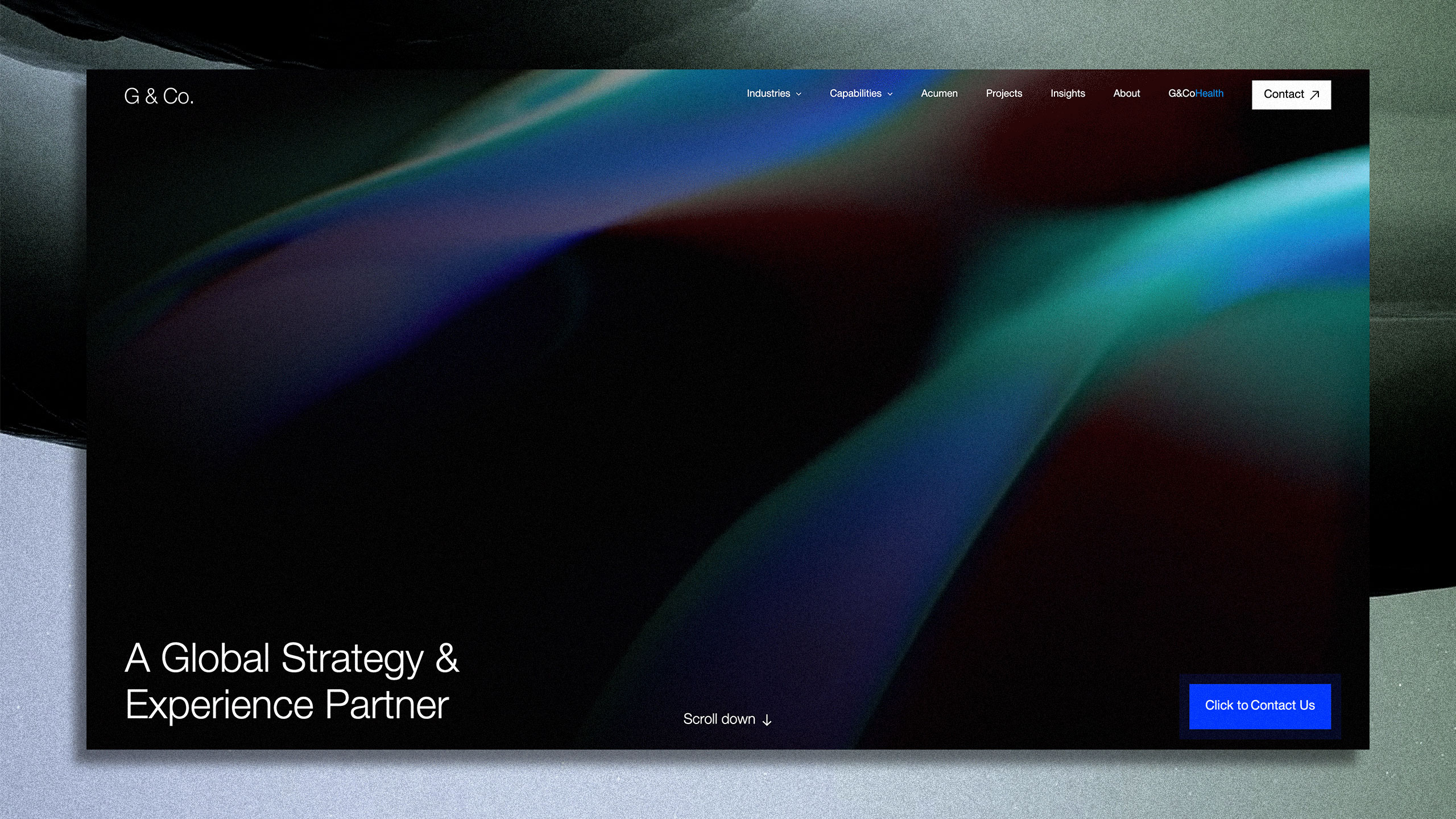
2. Capco
A global consulting firm insurance clients rely on for financial services transformation and digital enablement. Capco works with insurers to reimagine core operations, improve claims efficiency, and adopt agile frameworks, making them a go-to name among insurance consulting companies focused on long-term value creation.
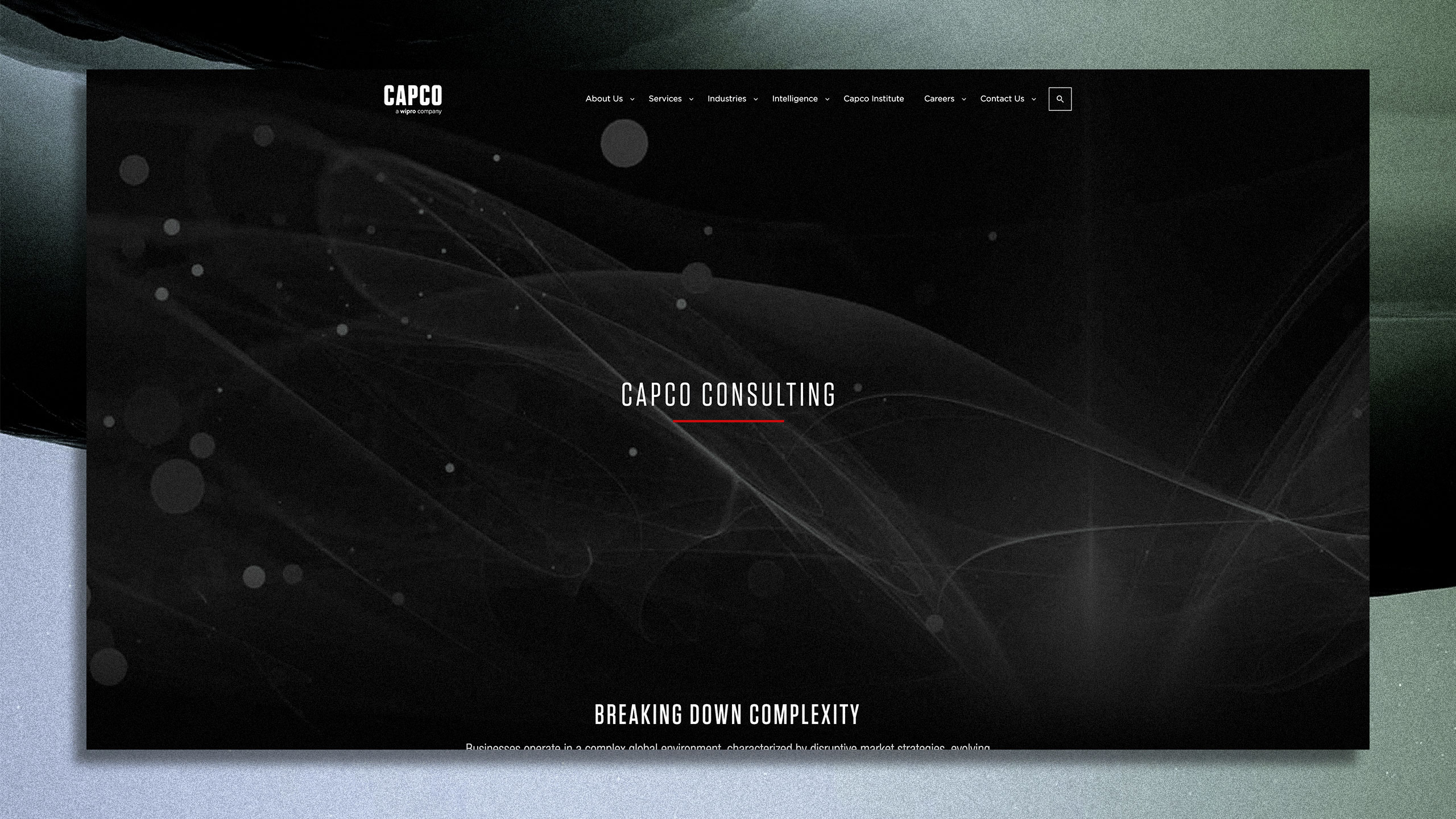
3. Charles River Associates
A niche insurance consulting firm focused on analytics, litigation, and regulatory consulting. Charles River Associates brings economic rigor to consulting company insurance challenges, helping carriers solve pricing, risk, and compliance issues through data-backed advisory services.
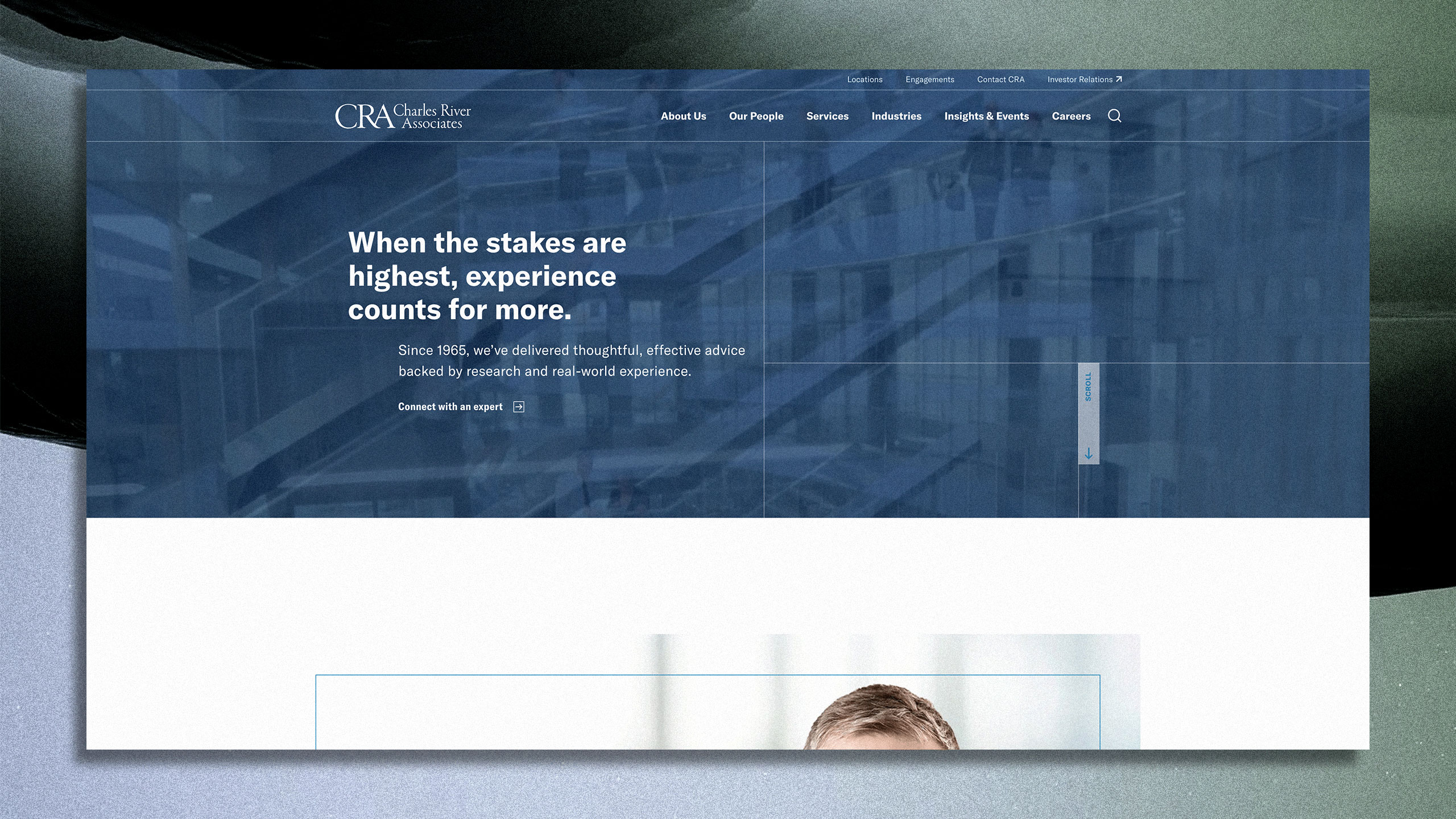
4. DXC Technology
An IT-forward consulting company insurance firms turn to for cloud migration, legacy system transformation, and data-driven claims automation. DXC enables digital scalability for insurers and reinsurers through insurance consulting companies solutions built on modern infrastructure.
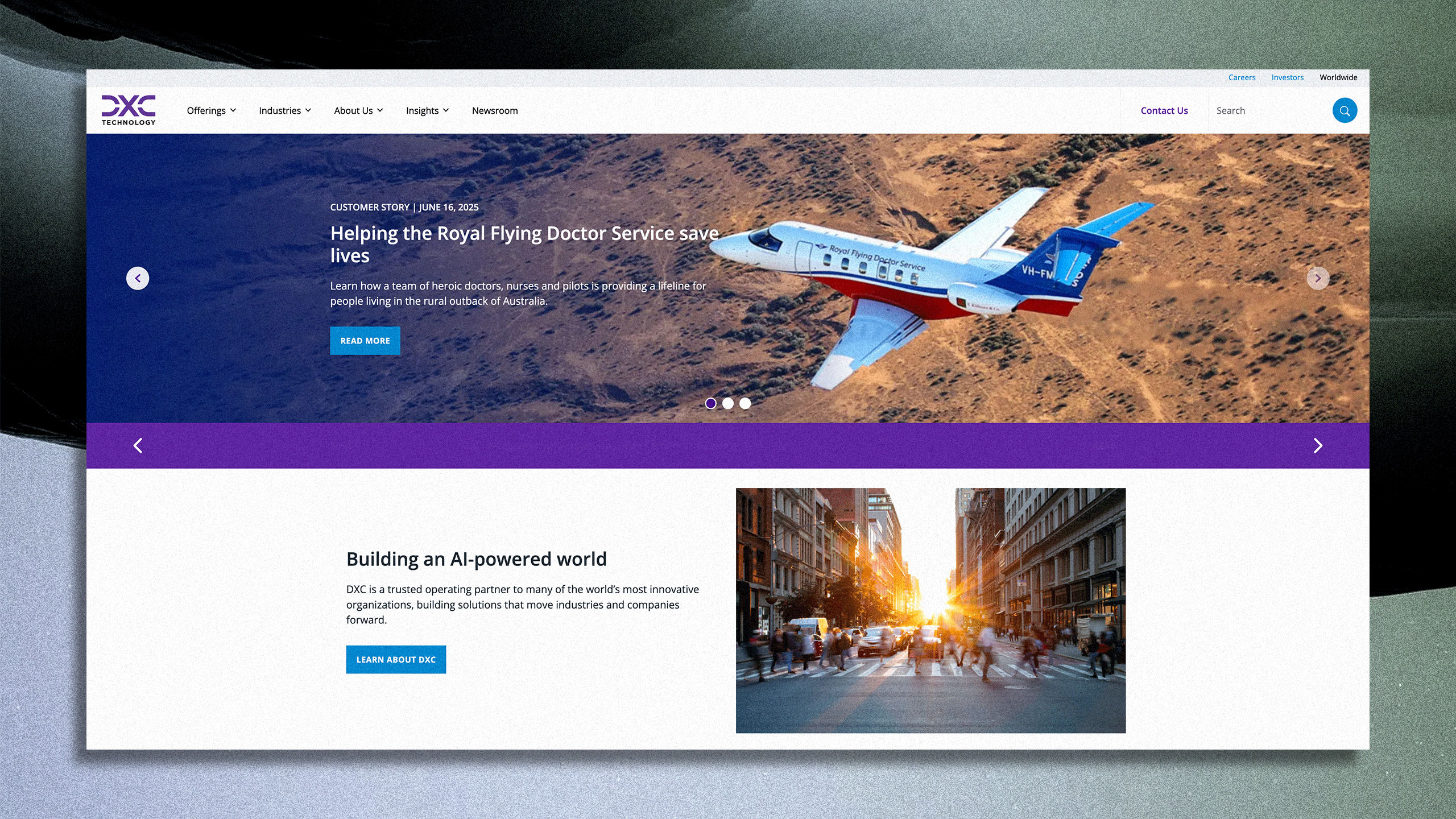
5. Gallagher
A brokerage-backed insurance agency consulting firm combining risk management services with advisory support. Gallagher supports commercial insurers and agencies with tailored strategies for pricing optimization, risk mitigation, and benefits structuring that align with evolving market needs.
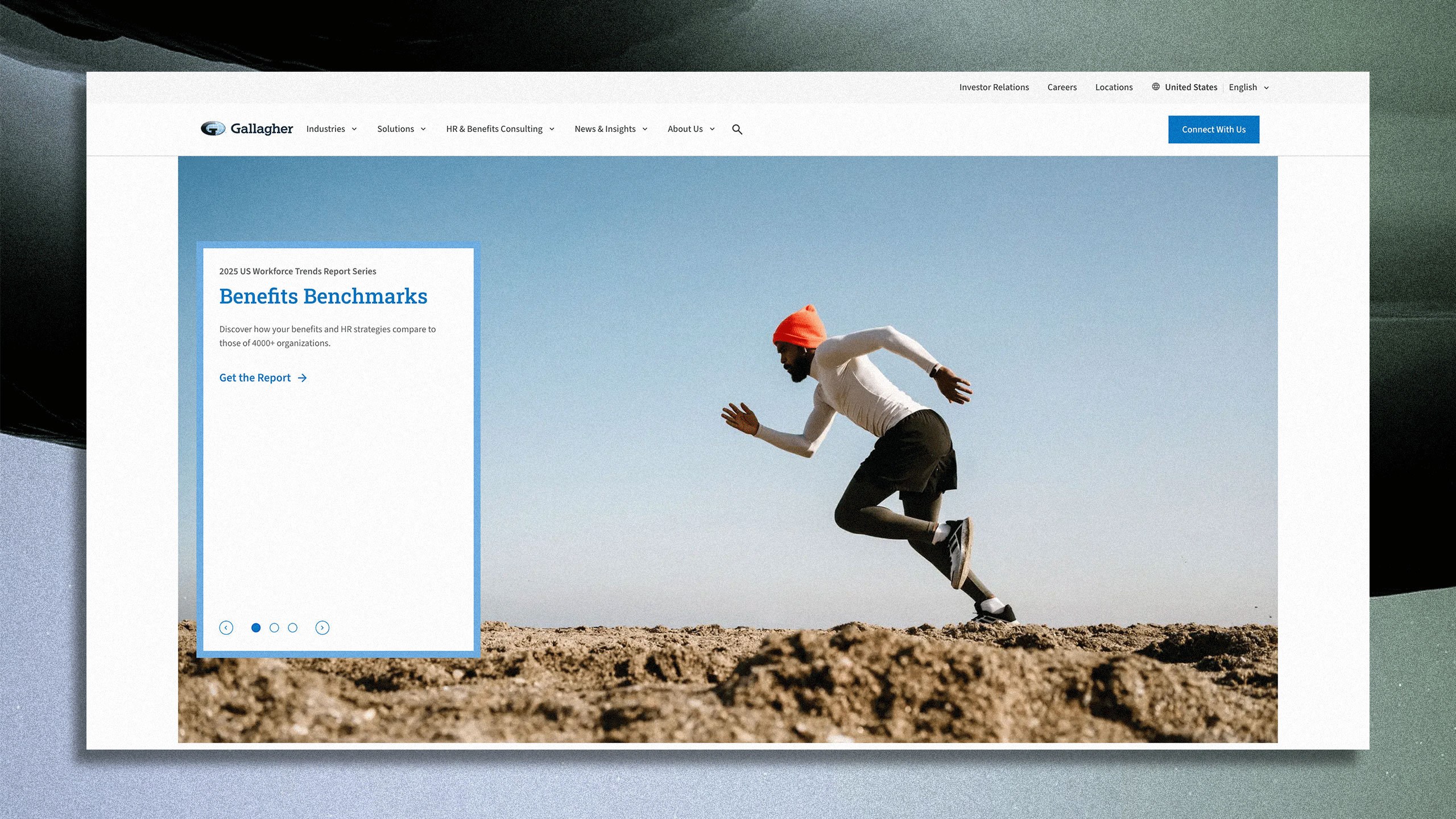
6. Angela Adams Consulting
A boutique consulting firm insurance agencies trust for operational support and growth guidance. Focused on back-office automation and agency audits, Angela Adams Consulting brings hands-on insight to insurance agency growth strategies that improve both profitability and process control.
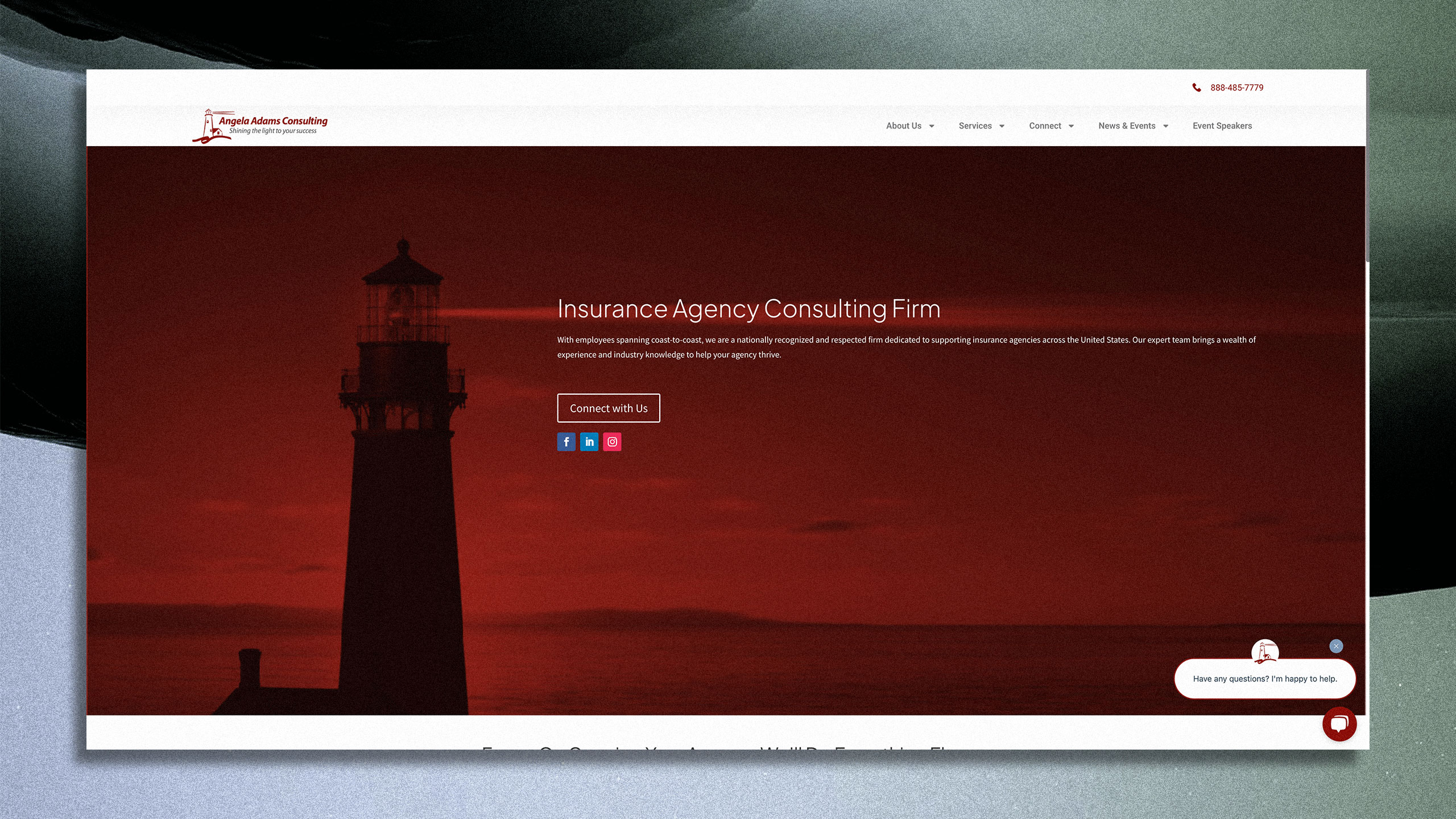
7. EPIC Insurance Brokers & Consultants
A national player among insurance consulting firms offering a hybrid of brokerage and consulting capabilities. EPIC serves agencies and carriers with integrated risk, benefits, and organizational growth strategies tailored to both employee needs and market demands.
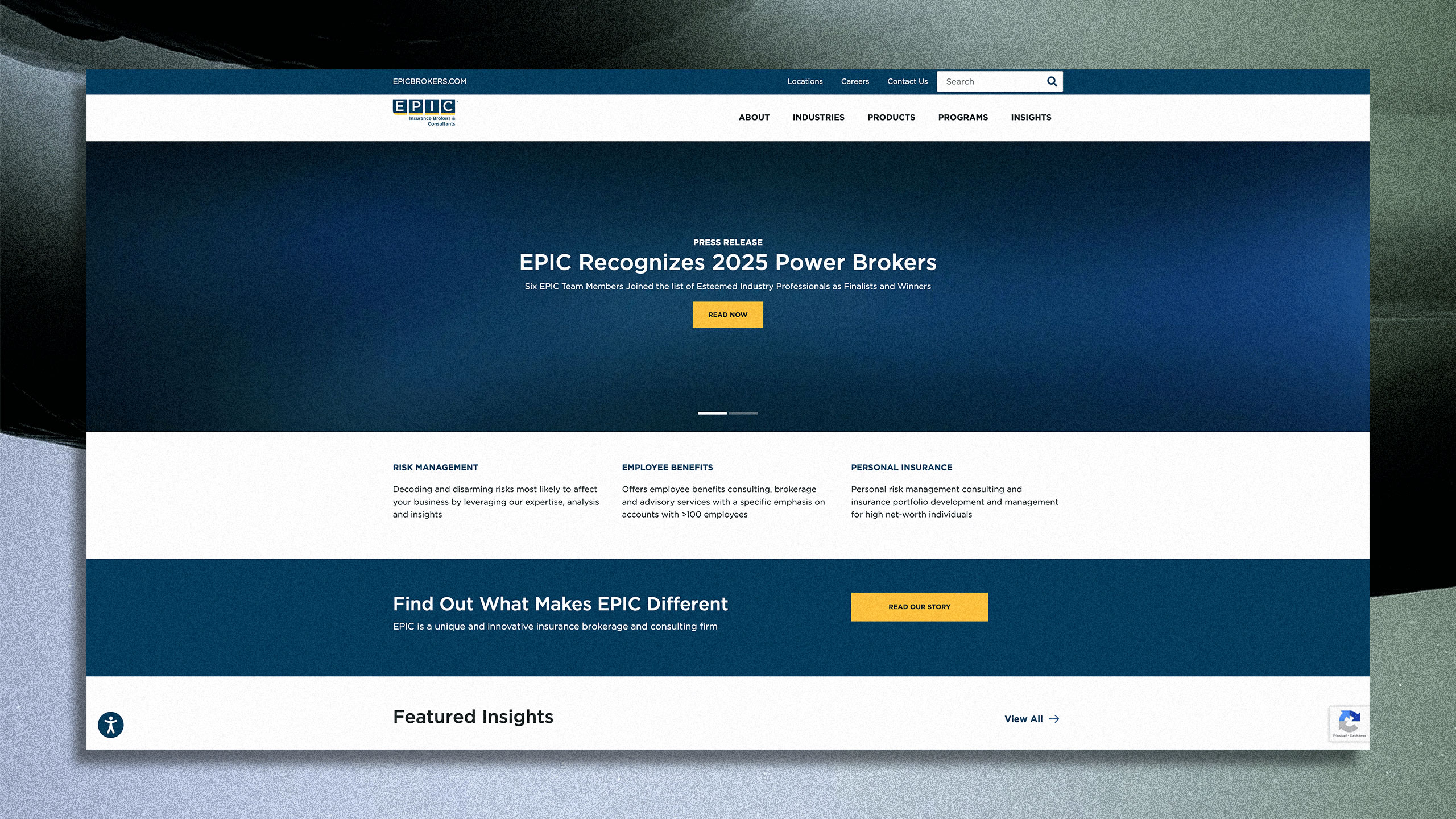
8. MarshBerry
A consulting company insurance specialists frequently partner with for M&A strategy, succession planning, and performance benchmarking. MarshBerry focuses on empowering agencies with the data and strategic direction needed to scale sustainably.

9. West Monroe
A digitally native consulting firm insurance organizations use for customer experience design and platform modernization. West Monroe brings practical implementation know-how to insurance consulting companies looking to reduce inefficiencies and improve time to market.
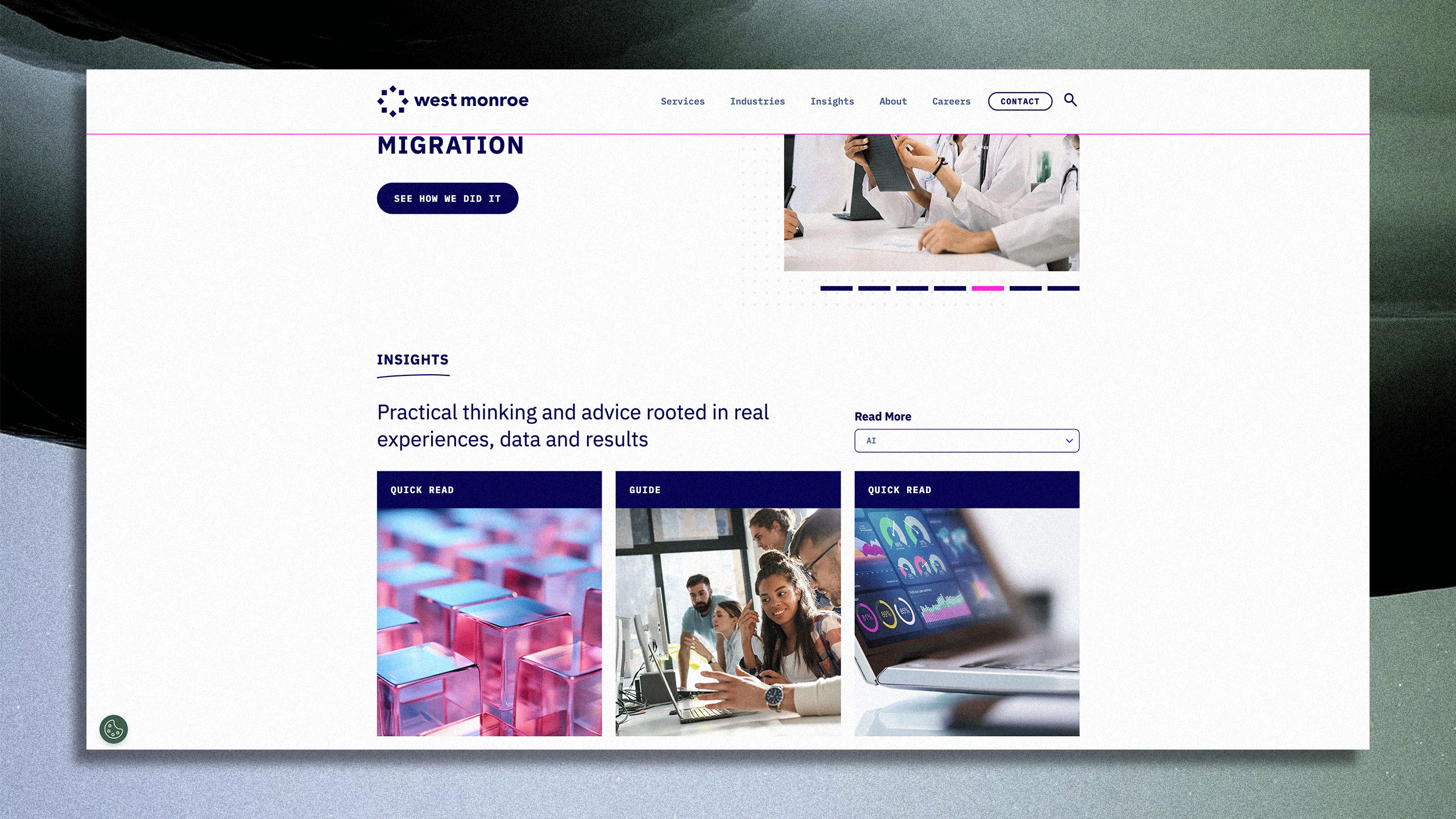
10. ZS Associates
A top insurance agency consulting firm known for pricing strategy, channel design, and data science application. ZS helps insurance clients apply predictive analytics and sales modeling to drive growth and competitiveness in dynamic market environments.
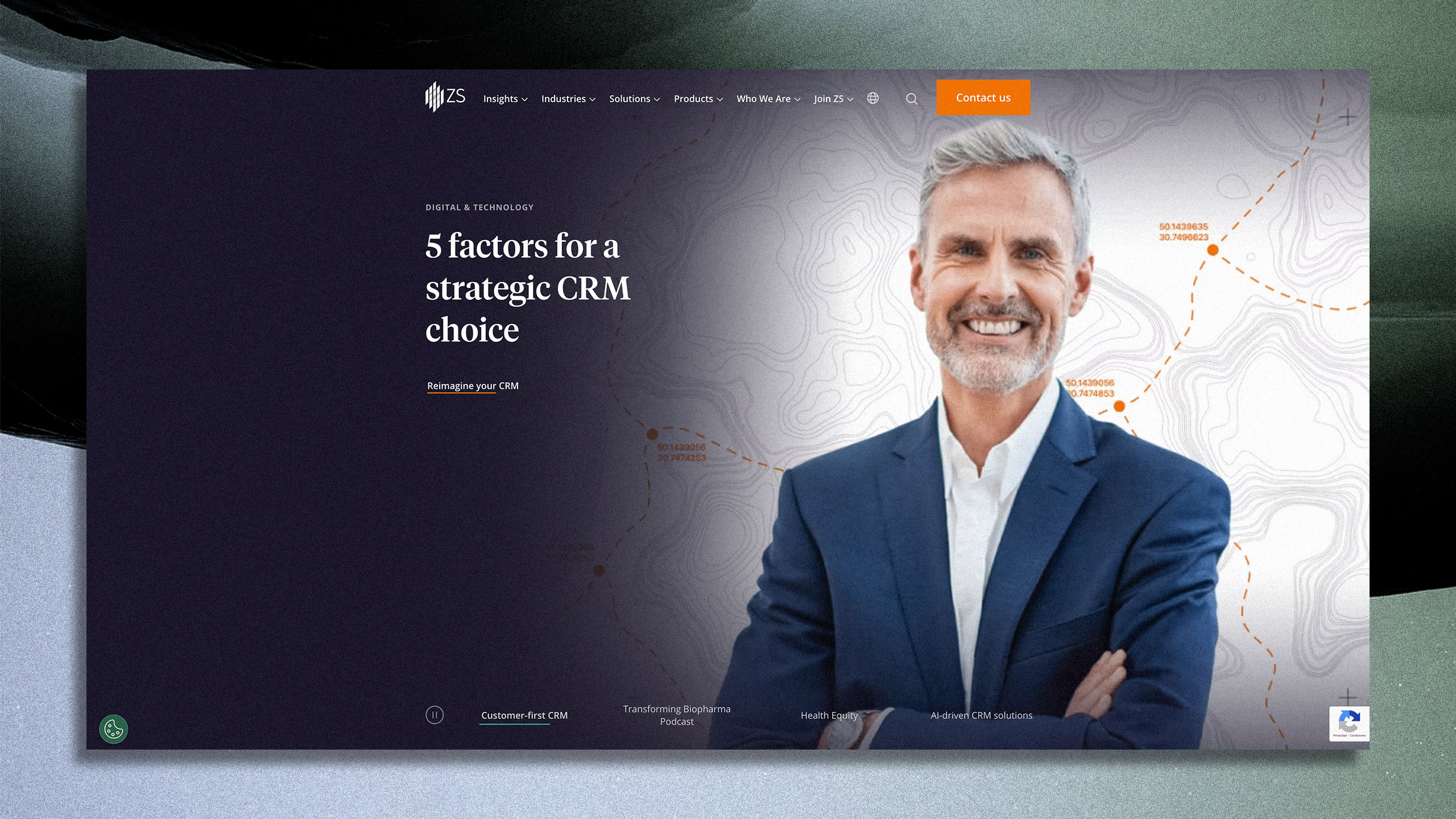
Let’s kickstart the conversation and design stuff people will love.

What Is Insurance Consulting?
Insurance consulting is the specialized advisory practice that helps insurers and insurance-related businesses address strategic, operational, regulatory, and technological challenges across the value chain. It encompasses areas such as underwriting optimization, claims transformation, pricing strategy, distribution channel design, compliance management, and customer experience innovation. By leveraging industry benchmarks, advanced analytics, and regulatory knowledge, insurance consulting enables carriers and agencies to improve profitability, reduce risk exposure, and stay competitive amid shifting market dynamics.
How Does Insurance Consulting Work?
Insurance consulting typically begins with a diagnostic assessment of an insurer’s current capabilities, performance metrics, and strategic objectives, followed by the design of tailored solutions to close performance gaps or unlock new opportunities. Consulting firms engage cross-functional client teams—ranging from actuarial and underwriting to claims and IT—to co-develop strategic roadmaps, implement process enhancements, or deploy new technologies. These engagements often include financial modeling, regulatory analysis, change management, and vendor selection support, ensuring alignment across business units while accelerating time to value.
What Is an Insurance Consulting Firm?
An insurance consulting firm is a professional services organization that provides expert guidance and implementation support to insurers, reinsurers, brokers, and agencies on a range of industry-specific challenges. These firms combine deep sector knowledge with cross-functional capabilities in strategy, operations, technology, and risk to help clients adapt to regulatory shifts, digital disruption, and evolving consumer expectations. Insurance consulting firms often serve as strategic partners, delivering both advisory and execution services that drive efficiency, innovation, and sustainable growth across the insurance ecosystem.
Insurance consulting firms bring a unique combination of industry knowledge, strategic insight, and technical expertise that allows them to solve complex challenges across the insurance value chain. From product development and pricing to claims optimization and digital transformation, these firms play a critical role in helping insurers operate more efficiently, meet evolving regulatory demands, and unlock new growth opportunities. The following section outlines the core capabilities that define leading insurance consulting firms—demonstrating how they deliver measurable impact through tailored solutions, cross-functional collaboration, and deep familiarity with the insurance landscape.
What Services Do Insurance Consulting Firms Provide?
Strategy & Growth Advisory
Insurance consulting firms support clients in defining and executing strategic initiatives that drive long-term value, market differentiation, and profitable growth. This includes market entry assessments, product portfolio strategy, distribution channel design, and competitive benchmarking. Firms guide insurers in aligning business models with shifting customer expectations and regulatory trends, while identifying levers for top-line expansion—whether through organic growth, M&A, or strategic partnerships.
Underwriting Optimization
Consulting firms help insurers modernize underwriting processes by integrating predictive analytics, automation tools, and risk segmentation models. They assess current workflows, identify inefficiencies, and implement frameworks that improve underwriting accuracy, speed, and consistency. By aligning underwriting practices with data-driven insights and evolving risk appetites, consultants enhance both customer experience and loss ratio performance.
Claims Transformation
Insurance consulting firms work with carriers to redesign the claims function to reduce costs, improve accuracy, and elevate customer satisfaction. This includes end-to-end claims process mapping, implementing automation and AI solutions, fraud detection strategies, and workforce redesign. Consultants also help optimize claims triage and settlement practices while integrating new technologies to reduce cycle time and leakage.
Regulatory Compliance & Risk Management
Insurance consulting firms guide clients through evolving global and regional regulations, including solvency requirements, data privacy laws, ESG mandates, and capital adequacy frameworks. They help build compliance frameworks, conduct regulatory impact assessments, and implement risk governance structures that meet both legal obligations and business goals. This enables insurers to stay ahead of compliance requirements while strengthening enterprise risk management capabilities.
Digital & Technology Transformation
Consulting firms assist insurers in developing and executing technology roadmaps that modernize legacy infrastructure, enhance digital capabilities, and improve integration across systems. This includes evaluating and implementing core insurance platforms, cloud migration, API strategies, and customer-facing digital tools. Firms also enable IT–business alignment through agile delivery models and transformation governance.
Actuarial Services & Pricing Strategy
Insurance consulting firms deliver actuarial modeling, reserving methodologies, and pricing strategies tailored to evolving risk profiles and market conditions. They support clients in developing competitive yet profitable rate structures, leveraging machine learning, and scenario planning to refine rating models. These services ensure insurers maintain pricing integrity, regulatory compliance, and underwriting profitability.
Customer Experience & Distribution Strategy
Consultants help insurers reimagine the customer journey across touchpoints—from onboarding and servicing to claims—by applying customer insights, design thinking, and digital tooling. They also optimize agent and broker channel performance through incentive design, channel mix analysis, and CRM implementation. These strategies are designed to increase customer retention, satisfaction, and acquisition efficiency.
Mergers & Acquisitions Support
Insurance consulting firms provide due diligence, valuation support, synergy modeling, and integration planning to insurers pursuing mergers, acquisitions, or divestitures. They assess cultural alignment, operating model compatibility, and value creation potential to reduce risk and accelerate post-deal impact. Consultants also support integration execution with playbooks and program management.
Data & Analytics Enablement
Consulting firms assist insurers in unlocking value from data by implementing data governance frameworks, advanced analytics capabilities, and AI-driven decision-making tools. They help clients centralize data across policy, claims, and customer systems to improve insights, forecasting, and automation potential—enabling smarter underwriting, pricing, and service strategies.
Operational Efficiency & Cost Optimization
Insurance consulting firms analyze end-to-end operational performance to identify areas for cost reduction and efficiency gains. This includes workforce optimization, shared services models, process automation, and lean operating structures. By streamlining workflows and reducing overhead, consultants improve scalability and profitability for insurers in competitive markets.
How Long Does an Insurance Consulting Engagement Take to Complete?
Understanding the typical timelines of an insurance consulting firm engagement is essential for setting realistic expectations and aligning internal resources. While timelines can vary based on the scope and complexity of the project, most engagements are structured around clear phases—ranging from initial diagnostics and strategic planning to implementation and post-project support. This section outlines the common duration of various types of consulting initiatives, helping insurers anticipate key milestones, allocate teams effectively, and gauge the level of commitment required for a successful outcome.
Project Scope and Complexity
The broader and more complex the engagement, the longer it will take to complete. Projects that involve enterprise-wide transformation—such as digital platform implementation, end-to-end claims redesign, or multi-market strategy development—can span several months to over a year. Simpler initiatives, like operational assessments or pricing model reviews, may be delivered in a matter of weeks. Clients should expect timeline variations based on how many business units, systems, or stakeholders are involved.
Client Size and Internal Bandwidth
Larger insurers with multiple lines of business and regional teams may require longer timelines due to coordination needs, while smaller agencies or focused carriers can typically move more quickly. Timelines are also influenced by a client’s ability to allocate internal resources, such as project leads, data owners, and subject matter experts, to work alongside the consulting team. When internal bandwidth is limited, engagements often require more time for knowledge transfer, decision-making, and approvals.
Stakeholder Alignment and Decision-Making
The speed at which internal stakeholders align on priorities, sign off on deliverables, and support execution plays a significant role in determining how long a project takes. Engagements can be delayed when leadership teams have divergent views, unclear mandates, or lengthy governance processes. Insurance consulting firms often structure projects with phased checkpoints to mitigate these risks, but clients should anticipate timeline extensions when alignment is slow to materialize.
Regulatory or Market Dependencies
Timelines can also be shaped by external factors, such as upcoming regulatory deadlines, market entry windows, or rate filing cycles. For example, a consulting firm helping prepare for IFRS 17 compliance or navigating state-level rate changes may need to time deliverables in accordance with fixed external milestones. In such cases, project pacing is often accelerated or segmented to meet critical go-live dates or compliance thresholds.
Technology Integration and Vendor Dependencies
When engagements involve core system upgrades, third-party software integration, or data platform development, timelines are heavily dependent on technical readiness and vendor coordination. Insurance consulting firms often work in parallel with IT teams and external vendors, but bottlenecks in system access, testing, or configuration can extend the timeline. Clients should anticipate additional time for procurement, system compatibility checks, and phased rollouts in tech-heavy projects.
Engagement Model and Level of Support
Whether the consulting firm is providing high-level advisory or full implementation support also affects the project duration. Strategic assessments and roadmap development can be completed in 6–12 weeks, while execution-oriented engagements—such as deploying a new underwriting model or overhauling distribution channels—require several months. Clients should clarify the depth of involvement expected from the consulting firm to better estimate the time horizon.
Change Management and Training Requirements
Projects that involve organizational change, workflow redesign, or workforce upskilling typically require additional time to account for communication planning, stakeholder engagement, and training. Insurance consulting firms often embed change management strategies into the timeline to ensure lasting impact. Prospective clients should factor in the time needed to onboard internal teams, adopt new processes, and build internal capabilities.
How Insurance Consulting Firms Price Their Work

Pricing is a critical consideration when evaluating whether to engage an insurance consulting firm, as it reflects both the scope of services and the level of expertise being provided. Unlike off-the-shelf solutions, insurance consulting engagements are typically tailored to the client’s specific challenges, goals, and operating model—resulting in a range of pricing structures based on complexity, duration, and level of involvement. This section explores the common pricing models used by insurance consulting firms, what factors influence cost, and how prospective clients can assess value relative to their business needs.
Scope of Work
The breadth and depth of the engagement are primary drivers of cost. Broader scopes—such as full-scale digital transformation, multi-line product strategy, or global compliance readiness—require significantly more time, resources, and cross-functional coordination, which increases pricing. Conversely, narrower scopes such as process audits or pricing model reviews may carry lower fees. Insurance consulting firms typically assess the number of workstreams, deliverables, and client touchpoints when determining how to price the engagement.
Duration of Engagement
Longer engagements typically result in higher overall costs but may offer more flexibility in pricing models, such as milestone billing or retainer structures. Short-term engagements, such as focused strategic assessments, are often billed as fixed-fee projects. Insurance consulting firms consider the number of weeks or months required to achieve objectives, factoring in dedicated team time, seniority of resources, and ongoing client support when estimating pricing.
Complexity of the Challenge
Projects involving high regulatory sensitivity, legacy system integration, actuarial modeling, or enterprise-wide transformation require deeper expertise and more specialized resources. The more technically complex or high-stakes the engagement, the more likely it is to involve senior consultants or cross-disciplinary teams—raising the overall pricing. Insurance consulting firms evaluate both business and technical complexity to align cost with the level of effort required to solve the problem effectively.
Team Composition and Seniority
Pricing is influenced by the type and seniority of professionals assigned to the engagement. Projects requiring sustained involvement from partners, actuaries, or senior data scientists command higher rates due to the specialized knowledge and leadership they bring. In contrast, engagements led by mid-level consultants or supported by offshore delivery teams may carry a more moderate cost structure. Insurance consulting firms tailor team structures to match client needs while balancing cost-efficiency.
Client Size and Operating Model
Larger clients with multiple business units, geographic markets, or regulatory environments often require more intensive coordination, stakeholder management, and customization—leading to higher fees. Insurance consulting firms may also consider the client’s operating model, decision-making structure, and internal bandwidth when pricing the engagement, particularly if extensive knowledge transfer or change management is required.
Level of Involvement (Advisory vs. Execution)
Advisory-only engagements—such as strategy development, roadmap planning, or opportunity assessment—are generally priced lower than those requiring full implementation support. Execution-heavy projects, like core system migrations or underwriting transformation, require more time, staffing, and sustained involvement, which increases pricing. Insurance consulting firms assess whether they are providing guidance, managing execution, or delivering end-to-end solutions when building a pricing model.
Pricing Model Chosen
Insurance consulting firms offer a range of pricing models—including hourly billing, fixed-fee, milestone-based, and performance-linked structures—each with different implications for cost. Clients seeking flexibility and control may prefer time-and-materials, while those with defined scopes often opt for fixed pricing. Firms determine the appropriate model based on project predictability, risk-sharing preferences, and client expectations, adjusting fees accordingly.
Why Hire an Insurance Consulting Firm

Choosing to work with an insurance consulting firm can be a pivotal decision for insurers looking to navigate today’s increasingly complex and competitive landscape. As the industry faces rising regulatory demands, shifting customer expectations, and rapid digital transformation, specialized consulting support offers the expertise, objectivity, and capacity many organizations lack internally. This section explores the key reasons why partnering with an insurance consulting firm can unlock strategic advantage—helping insurers improve performance, accelerate innovation, and position themselves for long-term growth.
Specialized Industry Expertise
Insurance consulting firms offer deep knowledge of the insurance landscape, including regulatory requirements, product design, distribution models, and risk management. This expertise allows them to quickly identify operational inefficiencies, strategic blind spots, and emerging opportunities that may not be visible to internal teams. By applying lessons learned from across the industry, consulting firms provide tailored guidance that helps insurers avoid common pitfalls and accelerate impact.
Objective, External Perspective
When navigating complex business challenges or large-scale transformations, insurers often benefit from an outside perspective that is not influenced by internal politics, legacy thinking, or organizational bias. Insurance consulting firms bring structured methodologies and fact-based analysis to decision-making, enabling clients to evaluate trade-offs more clearly and pursue initiatives with greater confidence. Their neutrality enhances the credibility of recommendations and facilitates stakeholder alignment across the organization.
Accelerated Problem Solving and Execution
Engaging an insurance consulting firm can significantly shorten the time it takes to diagnose issues, develop strategic plans, and implement solutions. These firms offer dedicated teams with proven frameworks, industry benchmarks, and access to best practices—reducing the trial-and-error phase for clients. Whether launching a new product line, modernizing claims, or preparing for regulatory changes, consulting firms help insurers move faster and more effectively.
Access to Advanced Tools and Capabilities
Top insurance consulting firms bring proprietary tools, data analytics platforms, and modeling capabilities that many insurers do not have in-house. These resources enhance everything from underwriting and pricing to customer experience design and performance tracking. By leveraging these capabilities, insurers can improve decision-making, automate manual processes, and gain actionable insights that support long-term growth and efficiency.
Support for Bandwidth and Capability Gaps
Insurers frequently turn to consulting firms when they lack the internal bandwidth or specific expertise needed to tackle high-priority initiatives. This could include temporary support during system upgrades, M&A activity, regulatory shifts, or market entry efforts. Insurance consulting firms augment internal teams with scalable resources and specialized knowledge, allowing the organization to maintain momentum without overextending existing staff.
Change Management and Implementation Support
Large-scale change—such as digital transformation, operating model redesign, or cultural shifts—requires structured execution and stakeholder alignment. Insurance consulting firms offer proven change management strategies, communication planning, and training support to ensure successful adoption of new ways of working. Their ability to manage resistance, drive accountability, and sustain momentum is a key reason why insurers engage these firms during critical transitions.
Strategic Risk Mitigation
In a highly regulated and risk-sensitive industry, insurers must make decisions that balance innovation with compliance and capital preservation. Insurance consulting firms help mitigate strategic and operational risks by conducting thorough scenario analysis, stress testing, and regulatory impact assessments. Their insight reduces the likelihood of missteps and equips insurers to make informed, defensible decisions across the enterprise.
How to Choose The Most Reliable Insurance Consulting Firm
Selecting the right insurance consulting firm is a critical step that can significantly influence the success of any strategic or operational initiative. With a wide range of firms offering overlapping services, insurers must look beyond surface-level credentials and focus on finding a partner whose expertise, approach, and capabilities align with their specific goals. This section outlines the key considerations that should guide the selection process—from industry experience and team composition to engagement models and cultural fit—helping businesses make informed, confident decisions when choosing an insurance consulting firm.
Relevant Industry and Domain Experience
An insurance consulting firm’s experience within your specific segment—whether it’s property and casualty, life and annuities, health insurance, or reinsurance—is critical for ensuring relevant insights and execution capability. Firms with a track record of working with similar carriers or agencies bring proven methodologies, regulatory fluency, and a deeper understanding of the operational challenges unique to your line of business. This familiarity accelerates onboarding, reduces risk, and enhances the quality of recommendations.
Customization and Flexibility
No two insurers face the same set of challenges, so the ability of a consulting firm to tailor its approach is essential. The right partner should offer customized solutions that align with your business model, market position, and internal capabilities—not generic frameworks. A flexible firm will adjust its methodology, scope, and delivery model based on your needs, ensuring that strategies are both practical and implementable within your environment.
Team Expertise and Composition
The strength of the consulting team assigned to your engagement often determines the success of the project. Evaluate the seniority, technical background, and industry experience of the individuals who will be actively working with your teams. Firms that commit experienced professionals with hands-on expertise—rather than delegating work primarily to junior consultants—are better positioned to solve complex issues and provide lasting value.
Proven Track Record and Case Studies
A strong insurance consulting firm should be able to demonstrate past success through case studies, client references, or quantifiable outcomes. Look for examples that mirror your objectives—such as claims modernization, regulatory readiness, or pricing strategy—and assess whether the firm has delivered measurable impact in similar settings. A proven track record builds confidence that the firm can replicate results under comparable conditions.
Strategic and Technical Balance
The most effective consulting firms bring a balanced blend of strategic insight and technical execution. While high-level guidance is valuable, firms should also have the ability to operationalize solutions, manage implementation, and support change management. Whether it’s redesigning underwriting models or modernizing core systems, look for a partner that can bridge strategy with delivery at every stage of the engagement.
Alignment with Culture and Ways of Working
Cultural fit is often overlooked but plays a significant role in engagement success. The right consulting firm should demonstrate a collaborative mindset, transparent communication, and a working style that aligns with your internal teams. Firms that integrate well into your organization foster stronger stakeholder engagement, reduce friction, and improve project momentum across functions.
Clear Communication and Governance
Effective communication and project governance are key to managing timelines, scope, and accountability. Look for consulting firms that provide structured communication plans, regular status updates, and clear escalation paths. A disciplined project management approach ensures alignment across stakeholders and enables timely adjustments as business needs evolve throughout the engagement.
Scalable Support and Long-Term Partnership Potential
Beyond immediate needs, consider whether the consulting firm can scale support as your priorities shift. The ability to provide end-to-end services—from strategic planning to implementation and post-engagement optimization—makes it easier to build a long-term relationship. Firms that view engagements as partnerships rather than one-off projects are better suited to support your ongoing transformation and growth objectives.

15 Questions To Ask Insurance Consulting Firms Before You Hire One
Before hiring an insurance consulting firm, it’s essential to ask the right questions to ensure the partnership will meet your organization’s specific goals, challenges, and expectations. With a wide range of firms offering overlapping services, due diligence is critical to uncover differences in expertise, approach, and delivery capability. This section highlights key questions prospective clients should consider—ranging from industry experience and past results to engagement structure and team composition—to help evaluate whether a firm is the right strategic fit.
Here are 15 thoughtful and strategic questions a prospective client might ask before hiring an insurance consulting firm:
- What experience do you have working with insurers in our specific line of business (e.g., P&C, life, health, reinsurance)?
- Can you share case studies or examples of measurable results from past insurance consulting engagements?
- How do you tailor your approach to fit the unique needs of each insurance organization you work with?
- What specific capabilities do you offer across strategy, operations, technology, and compliance within the insurance sector?
- Who will be assigned to our engagement, and what is their experience with similar projects?
- How do you structure your engagements—strategy-only, execution support, or end-to-end delivery?
- What is your typical timeline for engagements of our size and complexity?
- How do you price your services, and what pricing models do you offer (e.g., fixed fee, milestone-based, hourly)?
- What industries or insurers do you consider your core clients, and how do you stay current with regulatory and market changes?
- How do you handle change management and ensure stakeholder adoption during implementation?
- What tools, frameworks, or proprietary methodologies do you bring to insurance consulting engagements?
- How do you ensure collaboration with internal teams and maintain transparency throughout the engagement?
- What level of post-engagement support or optimization services do you provide?
- Can you help us benchmark our performance against industry peers or best practices?
- How do you manage risk, data confidentiality, and compliance throughout your consulting process?
1. What Experience Do You Have Working With Insurers in Our Specific Line of Business (e.g., P&C, Life, Health, Reinsurance)?
Experience in your specific insurance segment is essential because each line of business comes with its own regulatory requirements, product structures, customer behaviors, and operational models. Whether it’s the risk complexity of reinsurance or the regulatory demands of health insurance, the challenges differ significantly across categories. Asking this question ensures the consulting firm understands your business context and can apply proven strategies, rather than learning on the job. Firms with direct experience in your line of business will be better equipped to deliver relevant insights, avoid costly missteps, and accelerate results.
2. Can You Share Case Studies or Examples of Measurable Results From Past Insurance Consulting Engagements?
Case studies provide tangible proof of a consulting firm’s ability to deliver impact. When firms can demonstrate past results—such as improving claims cycle time, increasing underwriting efficiency, or navigating regulatory changes—it helps validate their expertise and approach. This question allows prospective clients to assess the firm’s ability to deliver on similar goals, understand how success is measured, and determine whether the outcomes align with their own priorities. It also signals whether the firm takes a results-driven approach versus offering generic advisory.
3. How Do You Tailor Your Approach to Fit the Unique Needs of Each Insurance Organization You Work With?
Every insurance organization has different systems, cultures, customer segments, and strategic objectives. A consulting firm’s ability to tailor its approach ensures recommendations are not only technically sound but also practical and implementable. This question highlights the firm’s willingness to adapt its methodologies, frameworks, and team structure based on your business model and internal capacity. Clients should look for signs that the firm values co-creation, stakeholder engagement, and flexibility—rather than relying on rigid, off-the-shelf solutions.
4. What Specific Capabilities Do You Offer Across Strategy, Operations, Technology, and Compliance Within the Insurance Sector?
This question helps determine whether the consulting firm can provide holistic support across the key pillars of insurance transformation. Strategic guidance alone may not be enough if execution, regulatory support, or tech enablement are also required. A firm with end-to-end capabilities—spanning pricing, underwriting, claims, customer experience, and compliance—can serve as a long-term partner that grows with your needs. It also reduces the complexity of managing multiple vendors or coordinating across siloed initiatives.
5. Who Will Be Assigned to Our Engagement, and What Is Their Experience With Similar Projects?
While the firm’s overall reputation matters, the quality and experience of the individuals delivering the work is what ultimately drives value. Asking this question ensures the consultants working with your team have relevant expertise, industry knowledge, and the leadership skills needed for successful execution. It also clarifies how involved senior team members will be throughout the engagement—not just during early scoping meetings. Clients should confirm that the assigned team reflects a good balance of strategic insight and hands-on implementation capability.
6. How Do You Structure Your Engagements—Strategy-Only, Execution Support, or End-to-End Delivery?
This question defines the scope of the relationship and sets clear expectations for what the firm will and won’t do. Some firms specialize in strategy but leave implementation to others, while others offer full-cycle support including execution, change management, and performance tracking. Understanding the engagement model up front ensures alignment with your internal resources and project goals. It also helps determine whether you’ll need to bring in additional partners or whether the consulting firm can manage the full transformation lifecycle.
7. What Is Your Typical Timeline for Engagements of Our Size and Complexity?
Timelines are critical for aligning internal planning, managing stakeholder expectations, and hitting key business milestones. Asking this question allows you to understand how long different phases of the engagement might take and what factors could accelerate or delay progress. A credible firm should be able to provide a realistic timeline based on experience with similar projects and explain how they manage project pacing, dependencies, and internal bandwidth limitations. It also helps ensure the firm has the capacity to deliver within your required timeframe.
8. How Do You Price Your Services, and What Pricing Models Do You Offer (e.g., Fixed Fee, Milestone-Based, Hourly)?
Pricing models vary widely and can affect the total cost, level of risk-sharing, and how work is prioritized. Understanding how a consulting firm prices its services—whether through fixed fees, hourly billing, retainers, or performance-based structures—helps ensure alignment with your budgeting process and risk tolerance. This question also signals whether the firm is transparent and flexible when it comes to cost structure, and how they handle changes in scope or timelines during the engagement.
9. What Industries or Insurers Do You Consider Your Core Clients, and How Do You Stay Current With Regulatory and Market Changes?
The best insurance consulting firms are deeply embedded in the industry and stay on top of changing regulations, technologies, and customer behaviors. Asking this question reveals whether the firm actively tracks trends, participates in insurance industry groups, and invests in continuous learning. It also helps assess whether the firm is well-versed in your region’s regulatory environment and understands the market-specific factors that could affect the success of your project.
10. How Do You Handle Change Management and Ensure Stakeholder Adoption During Implementation?
Even the best strategies will fail without buy-in from internal stakeholders. Change management is critical for ensuring smooth adoption of new processes, systems, or organizational structures. This question helps you understand whether the consulting firm has a structured approach to driving behavior change—such as communication planning, training programs, and stakeholder engagement strategies. Firms that prioritize change management are more likely to deliver lasting impact and ensure new solutions are embraced across the business.
11. What Tools, Frameworks, or Proprietary Methodologies Do You Bring to Insurance Consulting Engagements?
Many firms differentiate themselves through proprietary tools and accelerators that improve the speed and quality of outcomes. Asking this question helps you gauge the maturity of the firm’s intellectual capital—whether it’s actuarial models, regulatory readiness assessments, digital maturity benchmarks, or CX design frameworks. These tools can help you unlock value faster, reduce execution risk, and benchmark performance with more precision.
12. How Do You Ensure Collaboration With Internal Teams and Maintain Transparency Throughout the Engagement?
Collaboration and transparency are essential for building trust and ensuring project success. This question helps determine how the firm communicates progress, escalates risks, and integrates with your internal teams. Look for signs of structured communication plans, regular checkpoints, and a co-creation mindset. A firm that collaborates effectively will keep stakeholders aligned, manage dependencies proactively, and ensure smoother transitions between phases.
13. What Level of Post-Engagement Support or Optimization Services Do You Provide?
Insurance initiatives often require ongoing refinement after implementation. This question helps clarify whether the firm offers post-engagement services such as performance reviews, optimization roadmaps, or ongoing advisory support. Firms that remain engaged after project delivery demonstrate a commitment to long-term success and provide continuity that helps preserve the value of the original investment.
14. Can You Help Us Benchmark Our Performance Against Industry Peers or Best Practices?
Benchmarking is a powerful way to assess competitive standing and identify performance gaps. Consulting firms with access to insurance industry data can offer benchmarks across key metrics—such as claims cycle time, loss ratios, expense ratios, and customer satisfaction. This question helps you determine whether the firm can provide context for your current performance and guide goal-setting based on realistic, data-driven targets.
15. How Do You Manage Risk, Data Confidentiality, and Compliance Throughout Your Consulting Process?
Insurance organizations handle sensitive data and operate in heavily regulated environments, making confidentiality and compliance critical. This question ensures the firm has protocols in place for secure data handling, risk mitigation, and adherence to legal and regulatory standards. Look for firms that follow industry best practices, conduct regular audits, and are familiar with the specific compliance frameworks that apply to your line of business.
Searching for the Right Insurance Consulting Firm?
As the insurance industry faces mounting complexity—from evolving regulatory frameworks and shifting customer expectations to digital disruption and operational inefficiencies—partnering with an insurance consulting firm has become more valuable than ever. These firms bring the expertise, tools, and perspective needed to help insurers identify performance gaps, navigate transformation, and unlock long-term growth. Whether addressing underwriting challenges, modernizing claims, or preparing for future compliance demands, the right consulting partner can deliver lasting, measurable impact across every facet of the business. For insurers looking to remain competitive, resilient, and forward-thinking, engaging an experienced insurance consulting firm is a strategic investment in sustainable success.
G & Co. stands out among top insurance consulting firms for its ability to bridge strategic vision with execution—offering deep industry knowledge, digital transformation expertise, and a flexible, client-centric approach. From helping insurers reimagine the customer journey to modernizing legacy systems and optimizing operations, G & Co. delivers tailored, measurable results that align with business goals. With a proven track record of driving growth, efficiency, and innovation, G & Co. provides the comprehensive support insurers need to stay ahead in a fast-evolving market.
Submit an inquiry to G & Co. on our contact page or click on the blue "Click to Contact Us" button on the bottom right corner of your screen for your convenience. We look forward to hearing from you.






%20(1).png)






